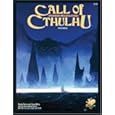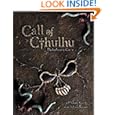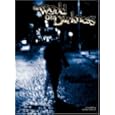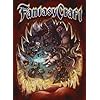As I’ve mentioned in previous blogs, there are a number of conspiracy theories regarding the formation of the Federal Reserve. Edward Griffin’s book “The Creature from Jekyll Island” contains most of the more colorful ones. My personal favorite out of that book is that then Secretary of the Navy Winston Churchill arranged for the sinking of the Lusitania by ordering it to sail through an area where a U-boat was known to be operating without naval escort.
The idea that political figures have knowingly allowed civilians to be targeted in order to incite war is not new. Many people believe that FDR allowed the Japanese to sneak attack Pearl Harbor in order to bring the United States into the Second World War. More recently, many suspected George Bush of allowing the terrorists to destroy the world trade center on 9/11 in order to bring on wartime conditions to launch a campaign for war in the Middle East. It seems that whenever events seem to play a contributing factor towards moving the United States to war that people suspect that there was a conspiracy behind these events.
In the case of the Lusitania, it’s impossible to rule out that Winston Churchill wanted the Lusitania to be sunk, be it seems highly unlikely. As another blogger points out the British warships were not equipped for submarine warfare and really presented more of a target than a deterrent. So the lack of assignment of a warship to escort the Lusitania is not the smoking gun that it might seem to be. Furthermore, numerous warning were sent to the Lusitania telling it to be on the lookout for German U-boats, but the most interesting detail in this drama was that the Lusitania received a message ordering it to alter course and sail for Queensland in order to avoid a potential U-boat attack.
As it turned out, the course alteration sent it right into the path of U-20 and a collision course with history. At the inquest, it turned out that the message was incorrectly sent to the Lusitania and that it was instead supposed to be sent to the British tugboat Hellespont. Of course, a conspiracy theorist would theorize that the British knew that U-20 was in that area and ordered the Lusitania towards Queenstown on purpose so that it would be deliberately sunk. But there is no evidence that the British knew the exact location of U-20. Submarines, by their very nature, are hard to discover. Furthermore, having the Lusitania travel towards a closer destination and reduce the amount of time she spent at sea does not seem to be the deliberate work of a conspiracy that would, in actuality, want her sunk.
Further complicating the conspiracy story is the fact that the United States did not immediately go to war with Germany. Americans often seem to think that the sinking of the Lusitania led directly to American involvement in the First world war, but almost a full two years later after the German sinking of American merchant vessels and the gradual deterioration of the diplomatic situation between the United States and Germany.
The Lusitania became the symbol that was used to crystalize the American public against the Germans, but there is nothing to suggest that there was a conspiracy to sink her. Given how long it took for the United States to enter the war after the sinking of the Lusitania, it clearly was not anything like Pearl Harbor which drew an immediate Declaration of War.
It seems interesting to me that conspiracy theories will nevertheless come begin to surround any seminal event that draws the United States into war. We are right to be suspicious of those who profit the most from a state of war, and skepticism is certainly warranted. After all, Hitler famously staged a Polish invasion of Germany for which Hitler had to retaliate by invading and conquering the nation. So it is certainly not outside of the realm of possibility that it might indeed happen, but the Lusitania (and 9/11 for that matter) are such long shots that to believe in such conspiracies shows you have simply chosen a world view where you believe such conspiracies to exist where there is any good reason to or not.
What can not be denied is that these conspiratorial takes on history are certainly compelling. Conspiracies indicate that there are powerful and nefarious forces at work that our out to shape our lives in unseen ways for some sinister purpose. It was the conspiracy story arc that made the X-Files such a good TV show and, similarly, such conspiracies are an absolute must to utilize in any sort of urban horror roleplaying, which brings me to what I wanted to talk about in this post.
Wouldn’t it be neat to set a roleplaying session on board the final voyage of the Lusitania? What actions would the characters take to thwart the disaster that the players themselves know to be coming? And what sinister conspirators are placing the PCs in harms way?
So then the question becomes which role playing system to use. Call of Cthulhu is an obvious choice, but I honestly was never that in love with the system. In the wake of first edition Dungeons and Dragons, a lot of roleplaying games were created that used a percentile skill system. Call of Cthulhu is derivative of those 1980s systems, and it shows. Each character has D&D style stats from 3 to 18, one of them being “Knowledge” and you take the knowledge score, multiply it by a lot, and then divvy up percentile skill points amongst the skills you feel your character needs.
There are a lot of things I don’t like about this. For one, it treats all skills as being equally hard/easy. Giving a compelling speech, understanding Biochemistry, hitting someone with a club, and speaking Japanese are all, in essence, just empty skills you put points into. But it seems like you could learn how to swing a club a lot easier than Japanese, doesn’t it? And shouldn’t your ability to give a compelling speech be somehow influenced your character’s charisma score? And shouldn’t your knowledge of Medicine, also related to your knowledge of Biochemistry, Anatomy, and Pharmacology? If you want to have a combat oriented character then you need to dump skill points into dodge (it’s own skill), kick (which does the exact same damage as a low caliber firearm), and learning a specific weapon, but you still wouldn’t be good at punching (for instance) or other weapons. Furthermore, someone else, using just slightly more skill points, could learn all more or less all there is to know about Medicine, Japanese, and History. Does this really make sense to anyone?
I find the D20 system far superior to the Call of Cthulhu system, so I prefer to do my modern horror roleplaying in systems such as Call of Cthulhu D20, D20 Modern, or Spycraft. Of course, if you say this to any traditional Call of Cthulhu roleplayers, they accuse you of being a powergamer (because all D20 players are D&D players who want to built the most broken character) and get ready to lynch you. I tried hanging out when D20 Call of Cthulhu was introduced by Monte Cook, but I found myself not welcome, so I just accepted that gamers were divided into separate gamer cultures that were not designed to mix. Which is a shame, because D20 Call of Cthulu was an excellent adaptation of the D20 system to the Call of Cthulhu world.
So then the other role playing systems that suggest themselves for the telling of this story are, D20 Modern, Spycraft, or the very non-D20 product of World of Darkness. World of Darkness is White Wolf’s “Storyteller” role playing system and, like all things White Wolf, it’s a dice pool system. How good you are at something is determined by dots on a character sheet which correspond to d10 dice rolled in related challenges. The target number you need for success determines how hard something is. The system is very elegant and flexible and I may come back to it later, but for right now, I’m a D20 fan. I’m going to try to tell my stories that way. The one things that the base World of Darkness rules seem to lack is a system for measuring how mentally unhinged you are, which has become a staple of horror products ever since Call of Cthulhu originally introduced it.
So if I were to limit my choice of role playing products to just D20 products that describe the modern world, I’m left with D20 Modern and Spycraft. Unfortunately, D20 Modern seems to have been abandoned by Wizards of the Coat. The official D20 Modern page at Wizards of the Coast hasn’t been updated in four years and Amazon lists the book as being unavailable except from private sellers for pricing ranging up to $85 for a new copy of the book.
I’m sad to see D20 Modern go, but I wasn’t happy with the way they treated magic and psionics in that system. Magic was still divided up into Arcane and Divine magic (for absolutely no good reason) and the ability to cast spells or use psionics was granted entirely by multiclassing into the appropriate, watered down, class. That made it so that if you wanted to be a weaker than normal character in this system all you had to do is, ironically, study super human abilities such as magic or psionics.
I also wasn’t happy with the way they treated firearms. It seems the game was designed with the adventures of the A-team in mind because the rules can allow for mass combats involving fully automatic weapons where nobody gets killed and all the main character are no worse for the wear in thirty minutes or so. For that matter, the rules expressly prohibit you from firing a fully automatic weapon as a fully automatic weapon unless you have the appropriate feat. So even if you pick up somebody’s M-16 off the ground and aim it at the bad guy, all you can do if fire off a single shot at any given target which would do 2d8 points of damage. The damage will not aggravate if left alone (so there’s no bleeding to death) and a first level character should be able to completely recover from getting hit by an M-16 round after four days of bed rest. That’s keeping in mind that he can be as active as he wants during the day with no penalty.
That’s not to say that a long recovery time aids to great role playing. I once ran a D20 Modern game with a longer recovery time and the character basically restricted to the hospital for days or weeks at a time, but that makes combat simply too prohibitive. You want cinematic action in a modern role playing game, not a true to life depiction of gunshot wounds.
I ultimately chose Spycraft as the system to tell this story. The Spycraft system has an overabundance of rules, but they are designed to be very modular and set up according to GC wishes for how the campaign wants to run. Want deadly firearms, just select the fragile campaign quality. Now all characters get two, three or four hits points per level for each given d8, d10, or d12 that their character possesses. And, in this system, an untrained person can fire an M-16 at a given target at least twice a round and, if they would like, can try to fire off bursts to hit the target multiple times. And, in this system, an M-16 hits for 4d4, so taking a couple of hits a round off of this can easily down your character, especially if you’re playing with the fragile campaign quality.
Now for the loss of sanity, Spycraft has introduced stress damage. Stress damage accumulates over time in stressful situations and, when it reaches each multiple of your Wisdom score (x1, x2, x4, etc) you have to make a progressively higher will save to keep it together. Furthermore, healing stress damage is harder the more you have. If you have just a few points, then take the day off. Got a few more? Take the week off. Got a whole lot more, you might be in the looney bin for a year or more. You can also add the Fragile Minds campaign quality and now have stress damage acquired from all kinds of frightening things in addition to adding phobias and neuroses (ala Call of Cthulhu) for failing will saves at progressively higher levels of stress damage.
The last cool feature I wanted to mention for Spycraft was that you don’t have to spend a lot of time stating out the villains. This was a huge chore in D&D, and generating stats for badguys typically took far longer than any other facet of story telling. Spycraft has taken a bold step by reducing most badguy stats to simply a scalar value from 1 to 10. So each badguy has stats for initiative, attack value, defense value, generic skills value, generic saves value, et cetera and a scalar value that ranges from 1 to 10. How tough a given villain is depends on how high the level of the party is, so the villain you generate is nicely level independent. This also allows for the writing of entire scenarios that, unlike D&D, do not have a level requirement for the party. Craft games took their Spycraft concepts and applied them to the Fantasy genre with Fantasycraft, which for those people who are in revolt from 4th edition D&D, is a nice alternative to traditional 3.5 D&D.





